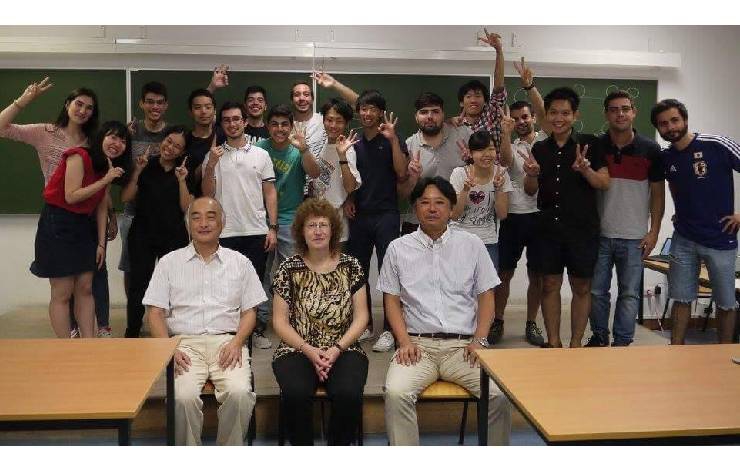30-07-2021

From July 27th to August 5th, 2021, the 5th Edition of the Global PBL (Global Project Based Learning) will take place. Due to the pandemic, the activities of the gPBL 2021 course are carried out online.
The event has been held every year, since 2017, under the existing collaboration agreement between the NOVA School of Science and Technology and the Shibaura Institute of Technology (SIT). The event has grown, with more and more participants and entities involved.
The 2021 edition of gPBL has the following entities involved:
FCT NOVA, Portugal
Shibaura Institute of Technology (SIT), Tokyo, Japan
Keio University, Tokyo, Japan.
King Mongkut’s University of Technology, Thonburi (KMUTT), Bangkok, Thailand
Suranaree University of Technology (SUT), Thailand
Institut Teknologi Sepuluh Nopember (ITS), Indonesia
UCSI University, Kuala Lumpur, Malaysia
Universiti Teknologi Malaysia (UTM), Malaysia
Universidad de Navarra, Spain
The program objectives aim to:
• development of synthetic problem-solving capacity.
• introduction of the concepts of “Systems thinking”, “Systems Method (Engineering Method)”, and “Systems Management (Project Management)”.
• experience working in international and interdisciplinary teams.
All activities and all communication are carried out in English.
There are Japanese, Thai, and Portuguese professors and teaching assistants.
Students work in teams. The teams are mixed, made up of Japanese, Thai, Indonesian, Malay, Spanish, and Portuguese students of different years and undergraduate and master’s degrees, and alumni.
Each team must build a problem-solving process indicated by the professors. The teams start by gathering requirements and needs from the environment, society, the market, etc. Next, they must define the problem. The last step is dedicated to developing a proposal to solve the problem.
Each group prepares a presentation of the proposals developed by them. On the last day there is the presentation of proposals from all groups. A jury chooses a winning group with the best proposal.
Most of the activities are developed in the form of games and recreational activities.
In the theoretical part, students can learn and apply some analytical techniques and tools (Brainstorming, KJ method, Mind map, Kano model, Kando Quality, QFD, TRIZ, 5W1H, Logical tree, Matrix method, A3 Material, etc.).
Contacts: Prof. Helena Navas – hvgn@fct.unl.pt